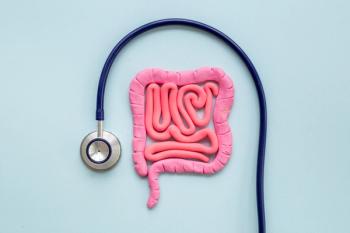
Efficacy of Therapeutic Cannabis in Patients With Medically Diagnosed Conditions
A majority of patients say that taking cannabis helps them with chronic pain management and other conditions.
Therapeutic cannabis consumption in patients with medically diagnosed conditions has a positive effect on pain, sleeplessness, and anxiety, according to new research published in Drugs, Habits and Social Policy.1
The study, led by a team of researchers from the University of Otago, Victoria University, and the University of Auckland in New Zealand, adds to the growing body of evidence that shows the efficacy of using cannabis for therapeutic purposes.
Although some controversy about the therapeutic benefits of cannabis remains in the medical community, research has shown that there are clear benefits in multiple clinically diagnosed conditions.
A patient survey published in the Hawaii Journal of Medicine and Public Health found that 97% of respondents reported relief from chronic pain, 50% reported relief from stress and anxiety, 45% reported relief from insomnia, 10% reported decreased nausea and 7% reported relief from depression.2
Investigators from the New Zealand study conducted an exploratory study to examine people’s experiences of taking cannabis therapeutically, as well as to gather real-world evidence about which products were being used, their efficacy and what kinds of positive or negative effects patients experienced.
The study cohort included 213 patients diagnosed with a medical condition. The participants were recruited through an Auckland-based cannabis clinic and an experienced green fairy—a term for someone who supplies medical cannabis to others.
The study employed a mixed-methods approach, where participants answered a survey and underwent semi-structured interviews. The data presented in the study focus on thematic analysis of five of the open-ended survey questions.
Investigators found that 95.6% of participants reported that taking cannabis helped with several different conditions. The most common theme for therapeutic efficacy was pain management, with 96% of patients saying cannabis helped. Other common themes where cannabis helped included difficulty sleeping, mental health issues, attention deficit hyperactivity disorder and post-traumatic stress disorder.
Negative side effects were reported by 28% of the participants, but these were relatively minor and some were related to having to source cannabis from the illicit market.
“An important finding of the study was that participants either decreased or stopped their use of prescribed medicines, many of which were opioid based,” said Geoff Noller, a co-author on the study and a research fellow at the Dunedin School of Medicine’s Centre for Bioethics. “This both reinforces that they experienced some actual effect from using cannabis in that they ceased or decreased other medications with recognized efficacy, and in the case of many of these other medications, they reduced their use of potentially more problematic medications.”
However, the researchers noted that they aren’t suggesting prescribed medicines do not have a place or that it needs to be an “either/or” decision.
“There is a place for both approaches with the results of this study suggesting that cannabis products could have a role in treating patients with chronic pain and other conditions refractory to treatment by conventional means,” said Noller.
Reference
1. Hutton F, Noller G, McSherry A. Patients experiences of therapeutic cannabis consumption in New Zealand. Drugs, Habits and Social Policy. Vol. 24 No. 2, pp. 117-132. https://doi.org/10.1108/DHS-12-2022-0049
2. Webb CW, Webb SM. Therapeutic benefits of cannabis: a patient survey. Hawaii J Med Public Health. 2014;73(4):109-111. https://pubmed.ncbi.nlm.nih.gov/24765558/
Newsletter
Pharmacy practice is always changing. Stay ahead of the curve with the Drug Topics newsletter and get the latest drug information, industry trends, and patient care tips.























